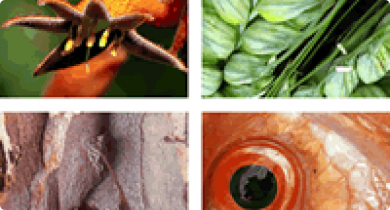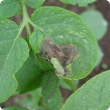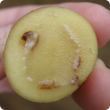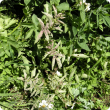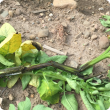Biosecurity
Biosecurity is fundamental for safeguarding our valuable agricultural resources against the threat and impacts of pests, weeds and diseases (pests).
Biosecurity is the management of the risk of animal and plant pests and diseases entering, emerging, establishing or spreading in Western Australia, to protect our economy, environment and the community.
To protect Western Australian agricultural industries from pests the Department of Agriculture and Food, Western Australia:
- Works with stakeholders to identify and manage biosecurity risks.
- Develops legislation.
- Establishes import controls.
- Conducts inspections.
- Provides quarantine services as required.
To find out more about what we do to protect agricultural production and export opportunities within the State please search our website.
Filter by search
Filter by topic
- (-) Remove Crops filter Crops
- (-) Remove Diseases filter Diseases
- Pests, weeds & diseases (34) Apply Pests, weeds & diseases filter
- (-) Remove Plant biosecurity filter Plant biosecurity
- Horticulture (33) Apply Horticulture filter
- Fruit (18) Apply Fruit filter
- Fungi (15) Apply Fungi filter
- Vegetables (14) Apply Vegetables filter
- Potatoes (10) Apply Potatoes filter
- Citrus (9) Apply Citrus filter
- Tomatoes (7) Apply Tomatoes filter
- Nursery & cutflowers (7) Apply Nursery & cutflowers filter
- Viruses & virus-like (6) Apply Viruses & virus-like filter
- Bacteria (5) Apply Bacteria filter
- Crop diseases (4) Apply Crop diseases filter
- Bananas (4) Apply Bananas filter
- Quarantine (3) Apply Quarantine filter
- Minor fruits (3) Apply Minor fruits filter
- Pests (3) Apply Pests filter
- Onions (3) Apply Onions filter
- Stone fruit (2) Apply Stone fruit filter
- Importing to Western Australia (2) Apply Importing to Western Australia filter
- Garlic (2) Apply Garlic filter
- Capsicums and chillies (2) Apply Capsicums and chillies filter
- Pasture management (1) Apply Pasture management filter
- Pastures (1) Apply Pastures filter
- Leeks (1) Apply Leeks filter
- Importing plant and plant products (1) Apply Importing plant and plant products filter
- Beans (1) Apply Beans filter
- Irrigated crops (1) Apply Irrigated crops filter

